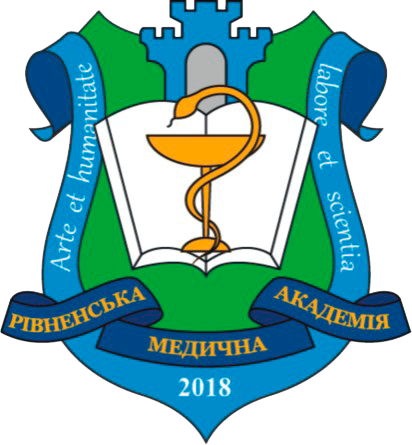SOCIAL AND PSYCHOLOGICAL FACTORS OF DEVIANT BEHAVIOR IN STUDENTS: DIAGNOSIS AND CORRECTION
DOI:
https://doi.org/10.32782/health-2024.1.28Keywords:
deviant behavior, students, personality, diagnosis, correction, social norms, self-control, self-regulation, social skills, emotions, reflection, social environment, communication, conflictAbstract
In this article, a thorough analysis of various aspects of deviant behavior among students is conducted, focusing on the study of socio-psychological factors that determine the emergence of this phenomenon. The research aims to identify, analyze, and understand the factors influencing the development of deviation among the student population. A significant part of the article is devoted to the examination of effective methods for correcting deviant behavior, based on the study of psychological and social mechanisms of interaction. The possibility of implementing programs to support students in overcoming difficulties and forming positive life strategies is highlighted. This article is aimed at in-depth study of deviant behavior among students and the development of specific recommendations for educators, psychologists, and other professionals working in the field of education and social support. In the paper, the author thoroughly investigates various methods of diagnosing deviant behavior among students, seeking to identify the causes and determine the level of deviation. Utilizing five different methodologies, the author aims to provide a comprehensive and deep analysis of the phenomenon of deviance, considering various aspects influencing the formation of such behavior among the student community. Special attention is given to the effectiveness of the developed and implemented correctional psychological program. This program is built on the results of diagnostics and takes into account the individual characteristics of the study participants. The goal of the program is active correction and reduction of the level of deviance among students through targeted psychological interventions. The author emphasizes the need to integrate diagnostic results into practical activities, especially in the development and implementation of correctional programs. A detailed analysis of the causes and determination of the level of deviance among students are key steps in understanding, adapting, and effectively implementing correctional strategies. Additionally, the author highlights the importance of combining theoretical aspects of research with practical applications, allowing for a more comprehensive and applicable solution in the field of education and psychological support for students. The obtained results not only serve as a basis for practical activities in the educational environment but also become a significant resource for further scientific research in the field of higher education psychology. This article serves as an important guide for researchers and practitioners involved in the psychosocial support of students and forms the basis for further developments in this field.
References
Алексєєва О.В. Шкільна дезадаптація й девіантна поведінка підлітків: причинно-наслідкові зв’язки. Наука і правоохорона. Київ, 2017. С. 250–257.
Архулік В. Девіантна поведінка підлітків: демократичні свободи чи соціальні дефекти. Нова педагогічна думка. Рівне, 2016. С. 58–62.
Борисенко Л.Г. Корекційна робота з дітьми з девіантною поведінкою. Київ : Алерта, 2015. 320 с.
Василюк Т.В. Профілактика девіантної поведінки в контексті сучасних наукових досліджень. Наукові записки Інституту законодавства Верховної Ради України. Київ, 2019. С. 179–186.
Герасимів Т.З. Девіантна поведінка особистості, її причини та шляхи попередження. Форум права. Київ, 2015. С. 49–55.
Грицишин О.В. Діагностика та корекція девіантної поведінки підлітків у шкільному середовищі. Наукові записки Тернопільського національного педагогічного університету імені В. Гнатюка. Серія «Педагогіка». 2019. Вип. 2(33). С. 23–26.
Гуртовенко Н.В. Корекція ціннісно-смислових орієнтацій підлітків, схильних до девіантної поведінки, засобами тренінгової роботи. Габітус. Київ, 2020. С. 69–70.
Замашкіна О. Девіантна поведінка підлітків: узагальнення, класифікація видів поведінкових відхилень. Науковий вісник Ізмаїльського державного гуманітарного університету. 2019. С. 75–81.
Леонгард К. Акцентуації характеру: підручник для студентів медичних вузів. Київ : Медицина, 2015. 256 с.
Леонгард К. Акцентуації характеру у психіатрії та наркології. Київ : Медицина, 2015. 184 с.
Пасічник В.О. Діагностика та корекція девіантної поведінки учнів початкової школи [Diagnosis and correction of deviant behavior of primary school students]. Матеріали II Всеукраїнської науково-практичної конференції з проблем психології та педагогіки. Київ, 2020. С. 157–161.
Стельмах З.С. Соціально-психологічні чинники девіантної поведінки у старшому підлітковому віці. Методологічні, теоретичні та практичні проблеми. Київ, 2021. 299 c.
Сухомлинська І.В. Дослідження рівня агресивності вчителів загальноосвітніх навчальних закладів за методикою «Орел – 98». Педагогічні науки. 2011. № 1(60). С. 104–109.
Терещенко Л.А. Девіантна поведінка підлітків як соціально-педагогічна проблема. Актуальні проблеми психології. 2013. № 10. С. 675–683.
Холіна Л.В. Діагностика та корекція девіантної поведінки школярів: психолого-педагогічні аспекти. Київ : Ліра, 2021. 216 с.





